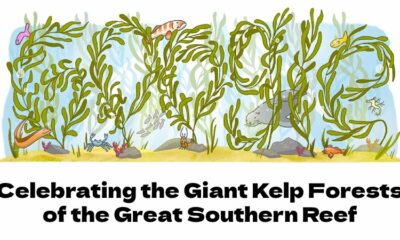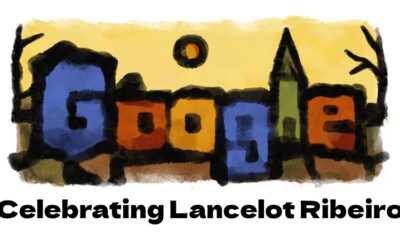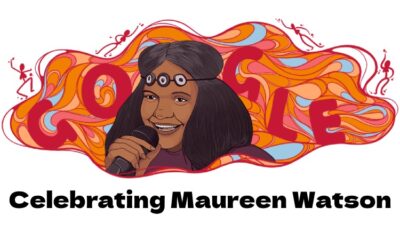Festivals & Events
Interesting Facts about Alfonso Caso, a Mexican Anthropologist, and Archaeologist

Alfonso Caso, a professor, anthropologist, and archaeologist from Mexico, is honored in a Google Doodle on his 128th birthday. His excavation of Tomb Seven at Monte Albán, one of the most valuable archeological discoveries ever made, made him most famous. He cleared the path for upcoming archaeologists and rewrote Mexican history with his contributions to pre-Columbian studies. It was on this day in 1896 that Caso was born in Mexico City. Here are some interesting and amazing facts about Alfonso Caso y Andrade.
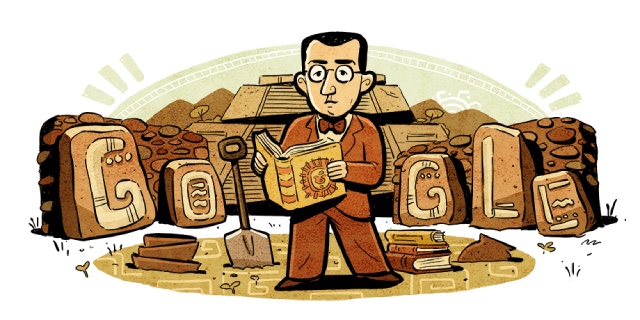
Here is a look at the life and work of Alfonso Caso y Andrade.
Who was Alfonso Caso Andrade?
The earliest known necropolis in North America, Tomb Seven at Monte Albán, was excavated by Mexican archaeologist and government official Alfonso Caso y Andrade. He studied the early Oaxacan cultures.
Quick Look
Birth date: 1 February 1896,
Birthplace: Mexico City, Mexico
Died on: 30 November 1970 (age 74 years)
Death place: Mexico City, Mexico
Education: Universidad Nacional Autónoma de México
25 Interesting Facts about Alfonso Caso y Andrade
- Mexican archaeologist Alfonso Caso y Andrade made significant contributions to pre-Columbian studies in his home region. Caso thought that one of the most important ways to comprehend the cultural origins of Mexico was to conduct a methodical study of the ancient Mexican civilizations.
- He was a member of the student group Los Siete Sabios de México (“The Seven Sages of Mexico”), a group of young intellectuals who established the “Society for Conferences and Concerts” in Mexico City to encourage cultural engagement among the student body.
- Among the other Sages was Vicente Lombardo Toledano, who later on became Caso’s brother-in-law through his marriage to Lombardo’s sister, the writer María Lombardo; together, they had four children. He wed Aida, her sister, following her death in 1966.
- After earning his legal degree in 1919, Caso began working as an instructor at the National Autonomous University of Mexico. The methodical legal education he acquired would influence his administrative and archaeology endeavors for the rest of his life.
- Caso traveled to the then-remote hilltop ceremonial center of Xochicalco in the Mexican state of Morelos when he was a young lawyer.
- His interest in pre-Hispanic Mexican archaeology was piqued by the art and architecture of Xochicalco. He started a study program at Mexico’s Museo Nacional while he was still working on legal matters involving commercial institutions.
- He studied pre-Hispanic history, ethnology, and archaeology there under the tutelage of eminent scholars like Eduard Seler, Hermann Beyer, and Manuel Gamio, with whom he frequently disagreed and offered opposing viewpoints.
- He graduated from the Escuela de Altos Estudios at the age of twenty-nine with a master’s degree in philosophy with a focus on archaeology. Following that, he committed his life to researching modern Indigenous peoples and pre-Hispanic cultures.
- His first essay on patolli and other pre-Hispanic games demonstrated his rigorous methods of interpretation, and his colleagues and teachers realized that a potent new professional voice had arrived.
- After completing his studies at the University of Mexico, Caso y Andrade joined its faculty in 1918 and remained there until 1940.
- In 1930–1933, he led the National Museum’s archaeology department, and from 1933–1934, he served as the museum’s director.
- In the state of Oaxaca, Caso oversaw excavations at the site of the ancient Zapotec city of Monte Albán from 1931 to 1943.
- His discovery of the burial offerings at the remarkable Tomb Seven and his analysis of them demonstrated that the Mixtec people had occupied Monte Albán sometime before the Spanish conquest after they had driven out the Zapotecs from the area.
- To create a rough chronology of Monte Albán’s history, Caso gathered evidence pointing to five major phases that date back to the eighth century BC. He was also able to establish correlations with other sites. Deciphering the Mixtec Codices was his other well-known achievement.
- Beginning in 1946, Caso held several positions in the government, including director of the National Institute for Indian Affairs (1949–1970).
- He is known for having supported the Indigenista (Indigenismo) movement, which aimed to give Mexico’s American Indian population more social and political representation in the country’s mainstream.
- Rejecting previous theories about cultural change being the result of trans-cultural diffusion, he attempted to explain the development of Mesoamerican civilizations in terms of continuity and internal evolution throughout his work. His multidisciplinary method included elements of history, demography, linguistics, and ethnography.
- Among his noteworthy finds are the Monte Albán excavations, specifically “Tomb Seven,” where numerous gold artifacts and offerings were discovered and are currently on display at the Regional Museum of Oaxaca.
- In the state of Oaxaca, he also found numerous sites in the Mixteca, including Monte Negro, Yucuita, and Yucuñudahui. In addition to finding new locations, Caso worked to interpret the ones he found, figuring out the history of Monte Albán and cracking Mixtec codices.
- Caso penned books about native Mesoamerican cultures throughout his life, encompassing the Olmec, Mixtec, Zapotec, and Aztec cultures. As the “cultura madre” (Mother culture) of Mesoamerica, he was among the first to declare the Olmecs to be the earliest civilization in the region. It is currently unknown how the Olmec interacted with other Mesoamerican cultures. His argument has since been contested by Mesoamerican archaeologists. The idea that the Zapotecs established hegemony over neighboring peoples was put forth in his writings about them, which drew criticism at the time but was later supported by other research after Caso’s passing. The theory was based on his work at Monte Albán.
- He was Antonio Caso Andrade’s younger brother, the philosopher.
- Rector of the National Autonomous University of Mexico, director of the National School of Anthropology and History, and the first director of the Instituto Nacional de Antropología e Historia were all positions held by Caso.
- The author of “Organic University Law” instituted the UNAM’s autonomy. Alongside this, he served as the Secretary of the National Goods and Administrative Examination (Secretario de Bienes Nacionales e Inspección Administrativa) from December 10, 1946, to December 31, 1948.
- The American Philosophical Society, the American Academy of Arts and Sciences, and the United States National Academy of Sciences all recognized him as a member.
- On February 1, 2024, Google featured a Google Doodle on its homepage for celebrating Alfonso Caso’s 128th Birthday.
-

 Business4 weeks ago
Business4 weeks agoBudget-friendly Strategies for Market Research When Starting a Business
-

 Business4 weeks ago
Business4 weeks agoSignificance of Small Business Saturday, an Annual Shopping Holiday
-
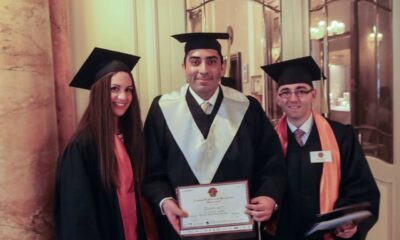
 Education3 weeks ago
Education3 weeks agoSwiss International University Acquires Four Prestigious Academies in Switzerland, Dubai, and Kyrgyzstan for $21.7 Million
-

 Startup2 weeks ago
Startup2 weeks agoAdam Strobel: Navigating the Shift from Tech Start-Up to Industry Leader
-

 Business3 weeks ago
Business3 weeks agoHow Efficiency is Key to a Small Business’s Customer Service Platform
-

 Business4 weeks ago
Business4 weeks agoSuccessful Small Business Marketing Strategies to Market Your Brand
-

 Tech1 week ago
Tech1 week agoAmazon is Expanding Its Strategic Partnership with Intuit by Providing Its Millions of Third-party Sellers with Intuit QuickBooks Software
-

 Health1 day ago
Health1 day agoFrom Hair Loss to Hair Restoration: How Men Are Tackling Balding in 2025



